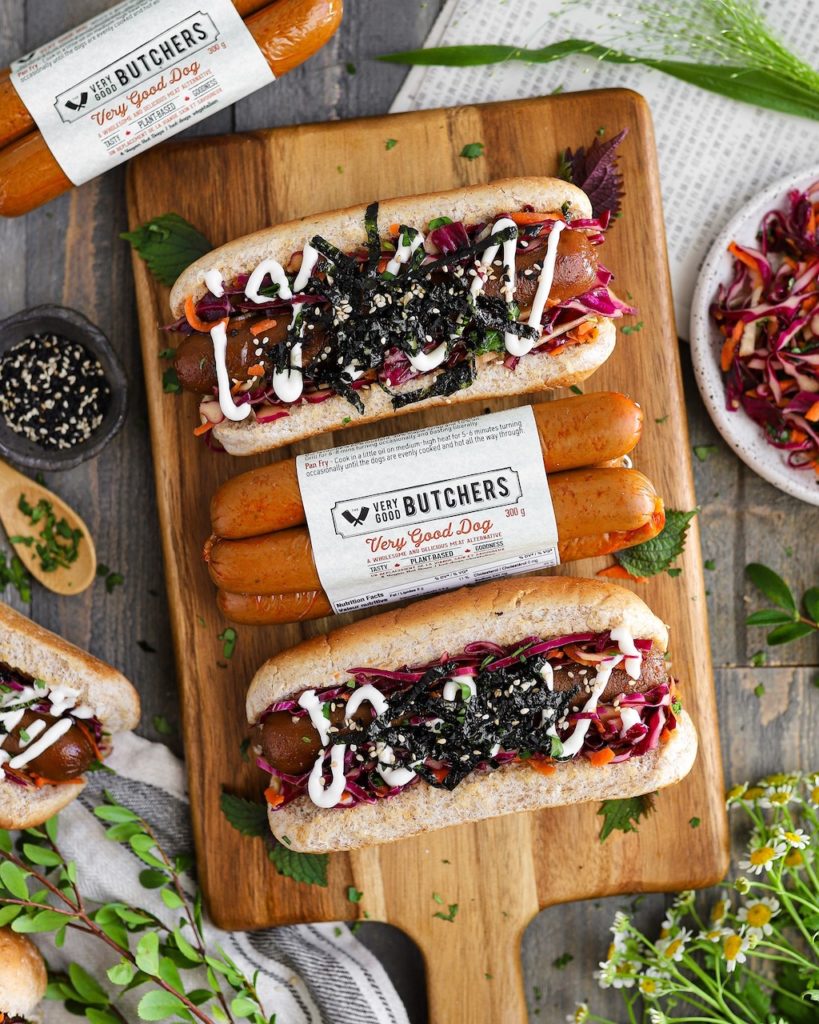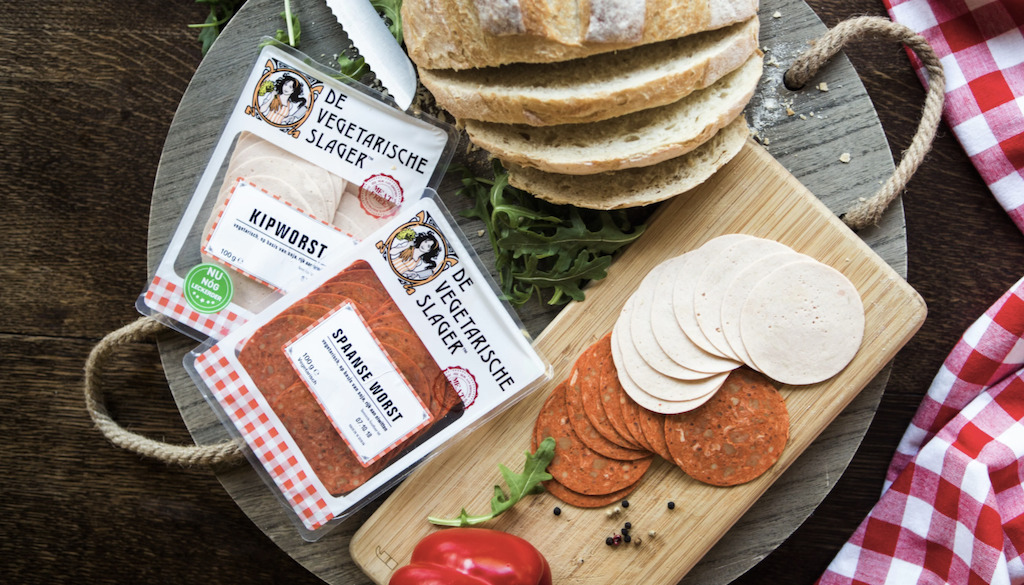4 Mins Read
As Veganuary anticipates its largest number of participants for 2022, the vegan meat market continues to be a top priority for consumers and the industry.
More than 300,000 people have already signed on for Veganuary, the month-long campaign that encourages people to go vegan for their health and the planet for all of January. With the campaign, comes new product launches and promotions. Two big announcements came through this week ahead of Veganuary: Starbucks just announced it would be dropping its surcharge for vegan milk in the UK, and Babybel launched a vegan cheese wheel.
Vegan Meat Demand
The pandemic saw an already thriving vegan meat market experience record-setting sales. Coronavirus shopping habits led to an increase in vegan meat sales of 264 percent. According to MarketsandMarkets, the plant-based meat market was valued at approximately $4.3 billion in 2020, and it will reach $8.3 billion by 2025.
Vegan meat demand continues to rise. Since last Veganuary the McDonald’s McPlant made its debut and has expanded to a number of U.S. locations. Both Beyond Meat and Impossible Foods launched vegan nuggets amid a growing number of plant-based chicken offerings. They’re now seeing competition from blue-chip food companies like Nestlé, Tyson, and Kellogg. Data released earlier this year estimates a five-fold increase in vegan food sales by 2030.
Unilever also recently released ambitious sales targets for its plant-based offerings. That’s part of its move toward reducing its overall greenhouse gas emissions. In a blue-chip first, it’s also inviting shareholders to vote on its climate policies at its shareholder meeting set for this spring.
Vegan Butchers
UK supermarket chain Sainsbury’s made headlines in 2019 when it launched a pop-up vegan butcher counter. The launch, the UK’s first vegan butcher, was such a departure from traditional supermarket fare that customers lined up for a taste. The launch was part of the World Meat-Free Week, which happens every year in June.
Sainsbury’s said it made the move after seeing a 65 percent increase in sales of vegan food year on year and doubling its vegan sales in the year leading up to the launch of the butcher shop.

It was a significant move for a supermarket in 2019 to take a chance on vegan meat counters, even for just three days, showed the market shift in all its meaty glory.
This led to a domino effect: another leading UK supermarket chain, Asda, launched its own vegan butcher counter last year, ‘Veelicious’, a six-month trial counter at its Watford store. Like a traditional meat counter, Veelicious features a range of meat options, as well as cheeses, sauces, and ready-meal kits, all made from plants.
Asda expanded its vegan butcher counter beyond the six-month mark, but the plan was to extend it to additional stores if successful. There’s been no update on that status. But even if the counter doesn’t succeed, the trend is undoubtedly here to stay. Tesco, the UK’s largest chain, says it will increase its vegan offerings 300 percent by 2025. The news comes after leading home furnishings giant, IKEA, announced it will make half of its cafe menus vegan by 2025.
“The demand for vegan products is on the rise and we have seen a surge in people seeking out ways to easily enjoy a plant-based lifestyle,” Asda’s Chief Strategy Officer, Preyash Thakrar, said in a statement. He says Asda launched the counter now, because it recognised the importance of helping its customers with their “Veganuary journey.”
The vegan butcher trend has been growing across the U.S., Canada, and Europe. Stand-alone vegan butchers like the Herbivorous Butcher in Minnesota and the Very Good Butchers in Canada can hardly keep up with demand. Very Good Butchers has been so successful it went public in 2020.
The Netherlands’ Vegetarian Butcher saw spiking sales ever since it sold to Unilever in 2019. And supermarkets like California’s Bristol Farms added its own vegan butcher counter in 2019, focusing on a local vegan meat producer, Uncut.

It’s not just vegan meat sales on the increase. Fodder for meatless butcher counters are coming from the produce aisles, too. In recent years both Whole Foods Market and Harrods launched “vegetable butchers” — counters preparing fresh-cut vegetables as demand for plant-based food skyrockets.
Meat and Fish Counters on the Decline
The shifting demand for vegan meat also comes as meat and fish counters across major supermarkets continue to shut down.
Tesco announced several major fish and meat counter closures over recent years, citing poor performance as the main reason. In 2020, Sainsbury’s also announced it was closing its meat and fish counters.
“The accelerated shift online will not reverse,” a Sainsbury’s representative told CNN. That shift isn’t just decreasing interest in meat or fish but also the impact of COVID-19. Consumers are doing more shopping online. They’re also reducing their meat consumption as a result of the outbreak, which was traced to a wet market in China.
U.S. slaughterhouses and meat-packing facilities also turned consumers toward healthier options. These facilities were some of the hardest-hit operations with widespread COVID infections. Traces of the COVID-19 infection were found in frozen meat samples last summer. As late as last November, China had discovered COVID-19 on frozen pork.
According to CNBC, some estimates put the meat industry’s losses at $20 billion for 2020.
Lead image: McDonald’s




